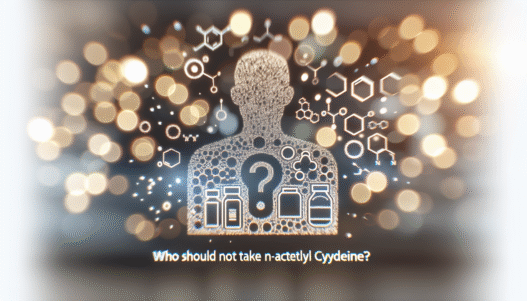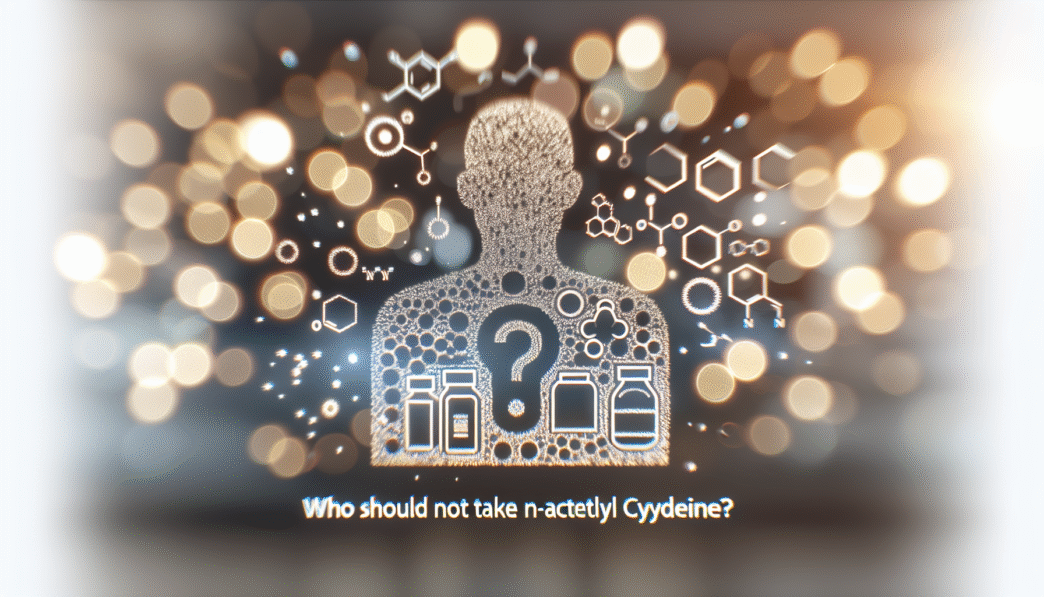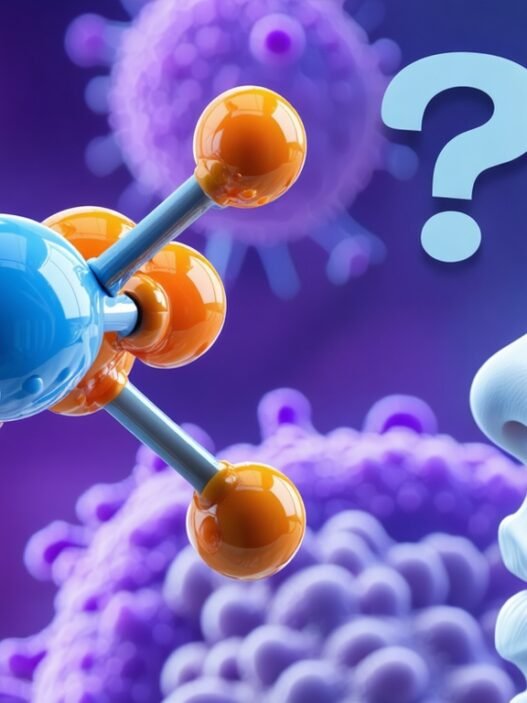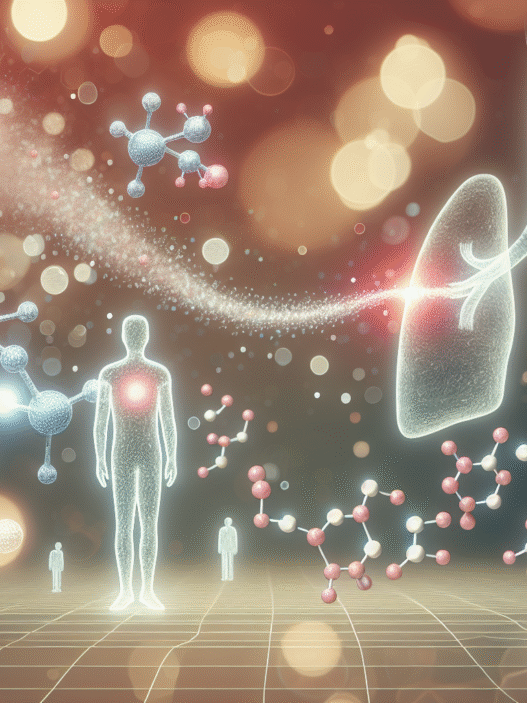Risks Associated with NAC
N-Acetyl Cysteine (NAC) is recognized for its potential benefits, particularly related to liver health and detoxification. However, it is essential to be aware of its risks. This section discusses the potential side effects of NAC and its interactions with medications.
Potential Side Effects
While NAC is generally considered safe for adults when prescribed, it can cause some adverse effects, especially when taken in high doses. Common side effects may include:
| Side Effect | Description |
|---|---|
| Nausea | A feeling of sickness or discomfort in the stomach. |
| Vomiting | The act of expelling contents of the stomach. |
| Diarrhea | Frequent, loose, or watery bowel movements. |
| Constipation | Difficulty in passing stools. |
| Respiratory Issues | Inhalation may lead to swelling in the mouth, runny nose, drowsiness, and chest tightness. |
Individuals with bleeding disorders or those taking blood-thinning medications should avoid NAC, as it may impede blood clotting. Additionally, patients with a history of asthma or bronchospasm should be closely monitored, as NAC can trigger bronchospasm and other adverse reactions. Individuals with cystinuria and those taking nitroglycerin also face risks including bleeding problems and lowered blood pressure (WebMD).
Interactions with Medications
NAC may interact with certain medications, potentially resulting in significant effects. For example:
- Nitroglycerin: NAC may enhance the effects of nitroglycerin, which can dilate blood vessels and increase blood flow. This interaction raises the risk of side effects such as headaches, dizziness, and lightheadedness (WebMD).
- Withdrawal Symptoms: Individuals on specific medications might experience withdrawal symptoms due to increased glutathione levels when taking NAC, leading to decreased levels of their existing medications. This can exacerbate symptoms of their original condition.
Cautious consideration is essential for those interested in NAC, especially when taking other medications or dealing with medical conditions. For more information about what conditions may necessitate avoiding NAC, explore our section on who should not take n-acetyl cysteine?.
Who Should Not Take NAC?
N-Acetyl Cysteine (NAC) can offer several health benefits, but certain individuals should avoid it due to specific medical conditions and potential risks.
Bleeding Disorders
Individuals with bleeding disorders or those who take blood-thinning medications should refrain from using NAC. NAC may slow blood clotting, which could increase the risk of bruising and bleeding (Healthline). Those who bleed easily, have cystinuria, or take nitroglycerin are particularly at risk for complications related to bleeding problems, kidney stone formation, and lowered blood pressure (WebMD).
| Condition | Risk |
|---|---|
| Bleeding Disorders | Increased risk of bruising and bleeding |
| Cystinuria | Risk of kidney stone formation |
| Nitroglycerin Users | Lowered blood pressure |
Asthma or Bronchospasm
Patients with a history of asthma or bronchospasm should approach NAC with caution. This group may experience adverse reactions, such as bronchospasm, following NAC administration. Close monitoring by a healthcare provider is recommended. Inhalation of NAC may cause symptoms like chest tightness, runny nose, and drowsiness, potentially aggravating asthma symptoms.
| Condition | Potential Reaction |
|---|---|
| Asthma | Chest tightness, worsened symptoms, drowsiness |
| Bronchospasm History | Risk of exacerbation |
Cystinuria
Individuals diagnosed with cystinuria should avoid NAC, as it contains toxic forms of cysteine that can exacerbate kidney complications. Cystinuria is characterized by excessive cysteine loss in urine, and supplementation with cysteine may lead to further complications.
| Condition | Risk |
|---|---|
| Cystinuria | Increased complications from cysteine |
If considering NAC for its potential health benefits, it’s crucial for these individuals to consult healthcare professionals for guidance and alternatives. For more information on NAC’s uses and potential negative side effects, refer to our articles on what is NAC N-Acetyl Cysteine used for? and what are the negative side effects of NAC?.
NAC and Specific Medical Conditions
N-Acetyl Cysteine (NAC) has various applications in health care, but it may not be suitable for everyone, particularly in certain medical situations. Understanding who should avoid NAC is crucial for ensuring safety and efficacy in its use.
Acetaminophen Poisoning
NAC is a vital treatment for acetaminophen poisoning, acting as a protective agent for the liver and kidneys. It is administered within a 10-hour window post-overdose to help replenish glutathione, which neutralizes toxic levels of N-acetyl-p-benzoquinone imine (NAPQI) in the body. Although NAC is critical in these situations, individuals experiencing acetaminophen poisoning must seek immediate medical attention. It is important to clarify that while NAC is a medication for overdose situations, it should only be used as directed and under medical supervision.
Chronic Lung Disease
NAC is used effectively in treating chronic lung disease, such as chronic bronchitis, by serving as an antecedent to glutathione, an antioxidant that supports respiratory health (New Drug Loft). While NAC can provide benefits in these contexts, individuals with pre-existing chronic lung conditions should consult healthcare professionals before starting NAC supplementation to avoid potential complications or side effects.
Psychiatric Disorders
NAC may have potential benefits in addressing psychiatric disorders such as depression, obsessive-compulsive disorder (OCD), and schizophrenia. It modulates neurotransmitters like glutamate and dopamine, which may help reduce neuroinflammation and impact cognitive functions. However, further research is needed to confirm these effects and to ensure that individuals with these disorders are assessed properly regarding NAC use. It’s recommended that anyone considering NAC for psychiatric conditions should do so under the guidance of a healthcare provider.
For those investigating the potential uses and risks associated with NAC, understanding the nuances of its application in various medical conditions is essential. More information on NAC’s overall benefits can be found in our article on what is NAC N-Acetyl Cysteine used for?.
Dosage and Toxicity Concerns
Understanding the appropriate dosage and potential toxicity of N-Acetyl Cysteine (NAC) is vital for those considering its use. The following sections detail safe dosage guidelines and the effects of high doses.
Safe Dosage Guidelines
When using NAC, it is essential to adhere to safe dosage recommendations. High amounts of NAC may lead to unwanted side effects such as nausea, vomiting, diarrhea, and constipation. Individuals with bleeding disorders or those taking blood-thinning medications should avoid NAC, as it may interfere with blood clotting. Furthermore, those with conditions like asthma may need to consult with their healthcare provider about discontinuing NAC two weeks prior to any elective surgery to reduce the risk of complications.
| Condition | Recommendation |
|---|---|
| Bleeding Disorders | Avoid NAC |
| Blood Thinning Medications | Avoid NAC |
| Asthma or Bleeding Problems | Consult doctor; consider discontinuation before surgery |
Toxicity of High Doses
The toxicity of NAC becomes a significant concern at high doses. Research indicates that exceeding 7 grams of cysteine can be toxic to human cells and may even lead to death. NAC may not be safe for individuals who have conditions like cystinuria, which increases the risk of kidney stone formation, or for those using nitroglycerin, due to potential drops in blood pressure(what are the negative side effects of nac?).
| Dosage Level | Effect |
|---|---|
| ≤7 grams | Typically safe for most individuals |
| >7 grams | Potentially toxic; risk of severe side effects |
Understanding these dosage guidelines and toxicity concerns is crucial for ensuring safe use of NAC. For additional information about NAC’s uses and effects, visit our article on what is nac n-acetyl cysteine used for?.
Medical Monitoring and Supervision
As individuals explore the potential benefits of N-Acetyl Cysteine (NAC), it is crucial to understand the significance of medical monitoring and supervision, especially for those with specific health conditions.
Closely Monitored Conditions
Certain groups should receive close medical supervision when taking NAC. This is particularly true for individuals with a history of asthma or bronchospasm. Research indicates that NAC can pose a risk of adverse reactions, like bronchospasm, after administration (American Family Physician). For asthma patients who inhale NAC, monitoring is critical, as it may lead to symptoms such as:
| Symptoms of Adverse Reactions | |
|---|---|
| Chest tightness | Yes |
| Numbness in the mouth | Yes |
| Runny nose | Yes |
| Drowsiness | Yes |
| Worsening asthma symptoms | Yes |
These potential side effects underline the necessity for immediate medical oversight for asthma patients when using NAC.
Importance of Medical Oversight
Medical supervision is also vital for children taking NAC. The supplement should only be administered under a healthcare provider’s guidance to avoid adverse effects or inappropriate dosing (Mount Sinai).
Moreover, for individuals on other medications, NAC could influence medication levels in the body due to its capacity to increase glutathione levels. This change may lead to withdrawal symptoms reflecting the original condition being treated. Thus, individuals should consult healthcare professionals before initiating NAC, particularly if they are already on prescribed medications. Those who have not begun medication yet and start NAC might experience a detoxification effect supportive of liver health and the immune system (Holistic Psychiatrist).
Having a medical professional oversee the use of NAC ensures that individuals can safely navigate its benefits while minimizing potential risks, making it critical for maintaining overall health and wellness.
FDA Guidance and Regulatory Information
Recent FDA Guidance
In August 2022, the FDA issued final guidance regarding the regulatory status of N-Acetyl Cysteine (NAC). This guidance stated that NAC will only encounter regulatory actions if safety concerns arise with specific NAC-containing dietary supplements. This ruling enables retailers to continue selling NAC supplements while ensuring consumer safety. The background of this decision stems from NAC’s approval as a drug in 1963, along with its extensive history of safe use in dietary supplements for over three decades.
Regulation of NAC Supplements
The regulation of NAC supplements has become a topic of interest for public health and safety. As of now, NAC is treated differently from other dietary supplements due to its approval status as a pharmaceutical. This means that while NAC is available over-the-counter as a supplement, it is also regulated for its safety as a drug. Therefore, it is essential for consumers to remain informed about potential risks associated with NAC, particularly those who may be asking themselves who should not take n-acetyl cysteine?.
For consumers looking for reliable information on dosages and potential interactions, it’s crucial to understand the current landscape of NAC regulation and ensure they are using high-quality supplements. Always consult healthcare professionals before starting any new supplement, especially in relation to specific health conditions or medications.





















